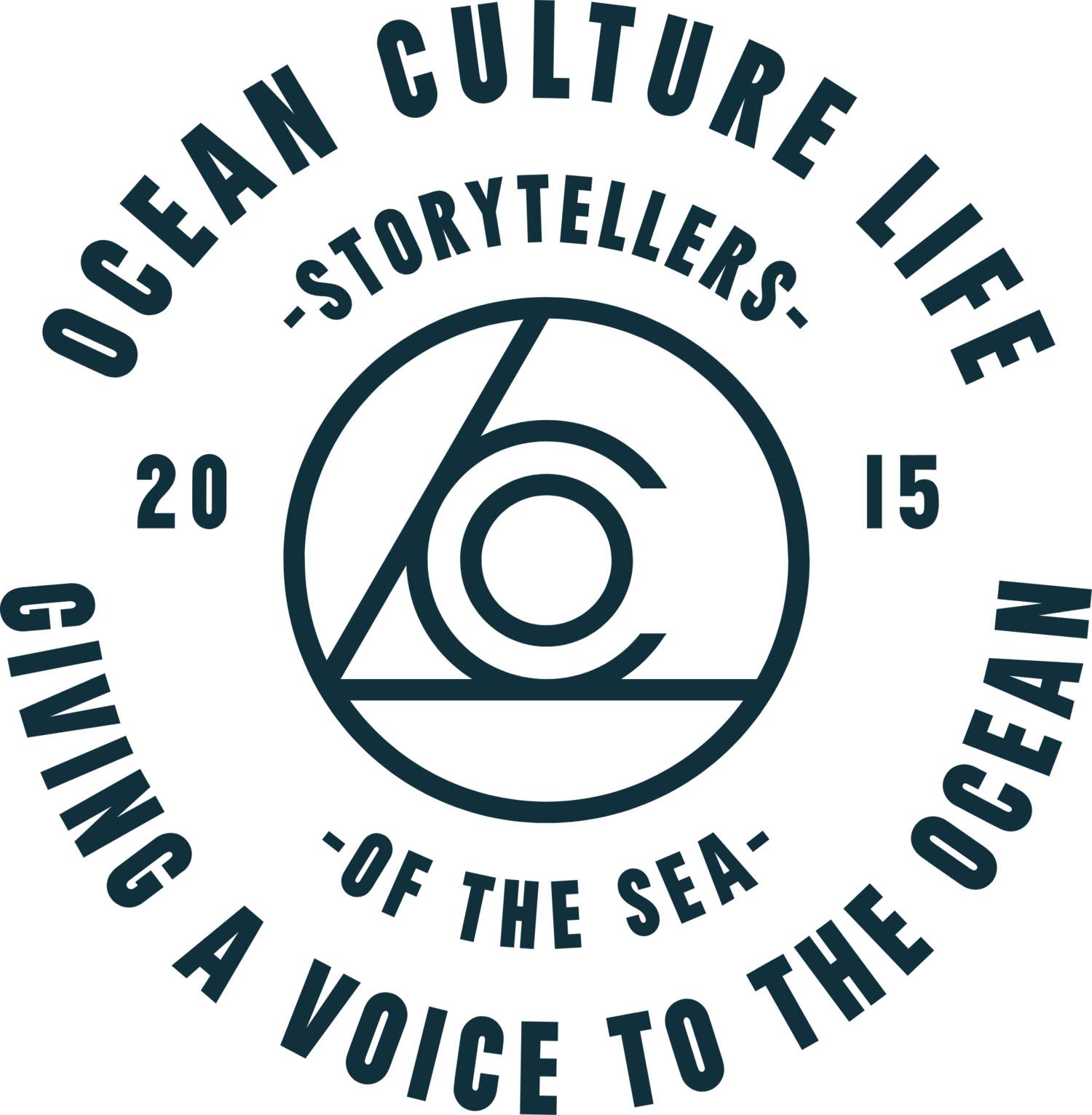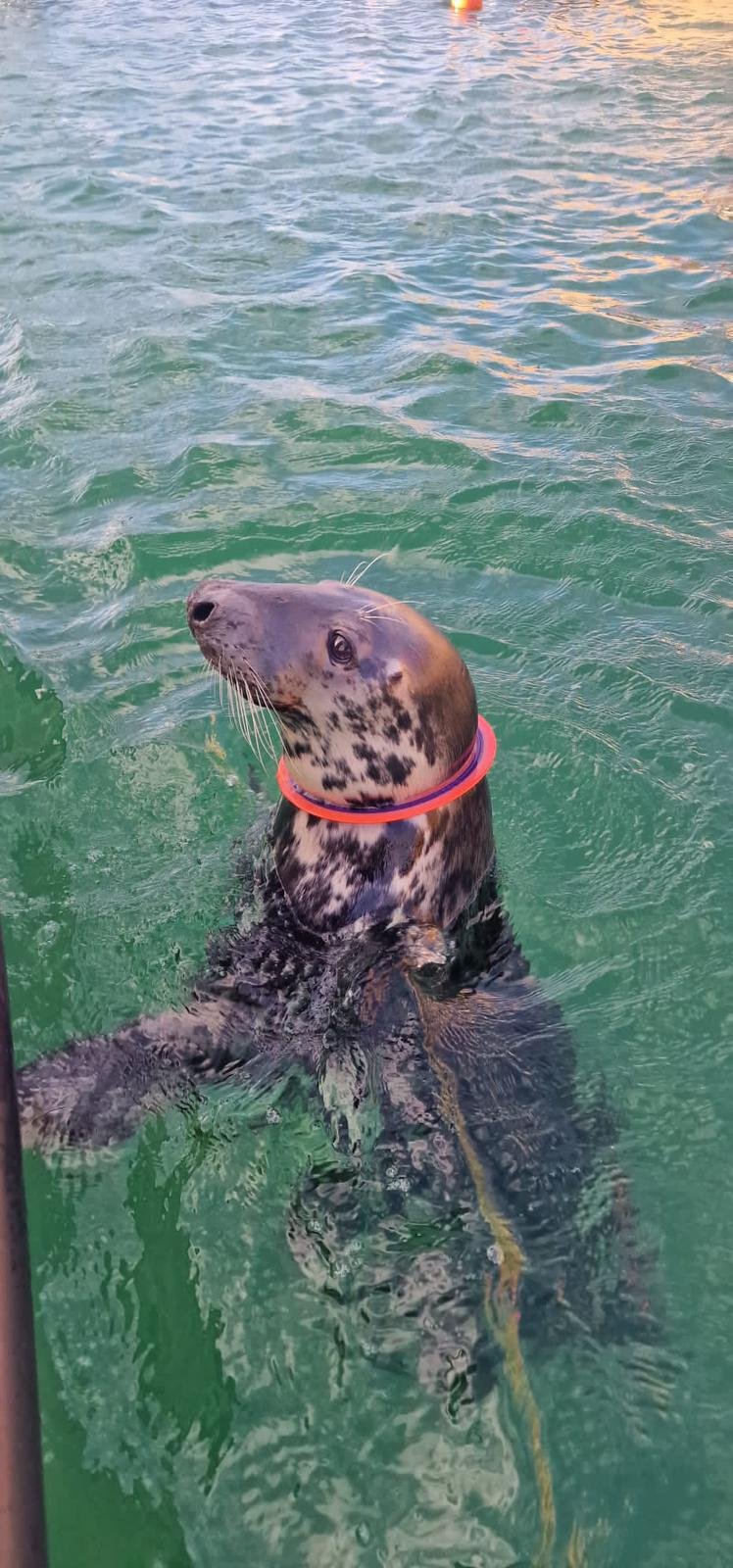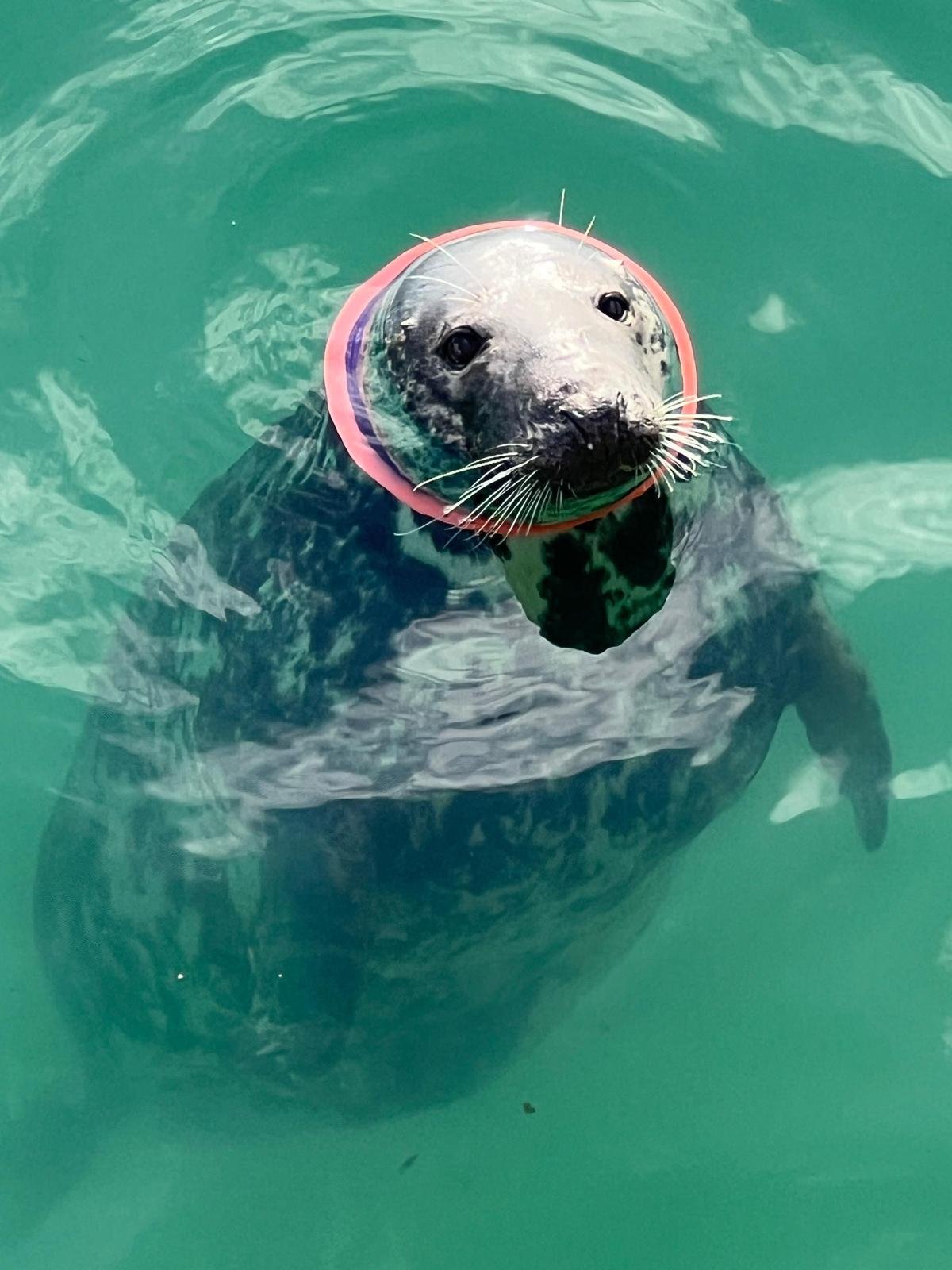Grey Seal Finally Freed From A Plastic Frisbee in Cornwall
Image Credit: Arthur Caulliez
Seals, the charismatic marine creatures that captivate our hearts, are facing a growing threat in the coastal waters of the busy UK tourist hotspot, Cornwall. Plastic pollution has become a menace, endangering their lives and well-being. In recent incidents, seals have been found entangled in plastic frisbees, posing significant risks to their survival.
However, thanks to the dedicated efforts of organisations like the British Divers Marine Life Rescue (BDMLR) and the Cornish Seal Sanctuary, these majestic creatures have been given a second chance at life.
It all began when concerned members of the public spotted an adult female grey seal with a ring-style frisbee tightly wrapped around its neck. The seal was seen struggling in St Ives Harbour, prompting immediate action from the Cornwall's seal rescue network and the BDMLR.
Upon inspection, it became evident that the frisbee was causing great distress to the seal. The tightness of the ring posed a significant risk of injury, infection, and even death.
The urgency to remove it was paramount to ensure the seal's survival.
Image Credit: Kirsty Probert, Jamie Ballentine & Kayleigh Slowey at the Cornish Seal Sanctuary
The Race Against Time
Rescuing a seal entangled in the water is no easy task. Seals are agile and swift, making it challenging to approach them safely. The first attempt to remove the frisbee by hand proved unsuccessful due to its secure fit. A new plan was devised to utilise the harbour structure itself to trap the seal and provide a safer environment for the rescue operation.
The following evening, the team from the BDMLR and the Cornish Seal Sanctuary assembled with specialised equipment, including herding boards and an adult-sized cage. Their aim was to guide the seal into the cage, where the frisbee could be safely removed.
With patience and determination, the team strategically positioned the herding boards adjacent to one of the harbour tunnels. The seal was enticed to swim repeatedly into the tunnel, with the team waiting for the opportune moment to guide her into the waiting cage. The strong currents and the seal's natural instincts added to the complexity of the operation.
Image Credit: Kirsty Probert, Jamie Ballentine & Kayleigh Slowey at the Cornish Seal Sanctuary
Finally, the seal swam into the cage, and the team swiftly secured her for the crucial removal of the frisbee. It was a moment of relief and celebration as they successfully freed the seal from the entanglement that threatened her life.
Image Credit: Kirsty Probert, Jamie Ballentine & Kayleigh Slowey at the Cornish Seal Sanctuary
BDMLR Area Coordinator Dan Jarvis said:
“We were all on tenterhooks waiting for the right moment, as it was critical that we didn’t spook her by charging in too soon as if we lost her back into the harbour then we might not get another chance to try this.
“Luckily, she relaxed and gave us the time we needed to rush in and block off the entrance, which was very difficult to maintain given the strong current washing in and out of the tunnel despite being just under waist depth and we needed quite a few of us to brace against the boards to maintain the blockade.”
“With some quick thinking, we managed to run in and distract her so that she slipped back into the tunnel again, which was a pretty hair-raising moment!”
The Ongoing Battle Against Plastic Pollution
The rescue of this seal serves as a poignant reminder of the dangers posed by plastic waste in our marine environments. The incident highlights the need for responsible waste management and the adoption of sustainable practices to protect our wildlife.
Tamara Cooper, curator for the Cornish Seal Sanctuary, emphasised the importance of understanding the implications of plastic pollution on marine life. She stated, "We all know how dangerous plastic waste can be for our marine wildlife, but this is just one example of how our local seals can face life-or-death situations."
The Increasing Threat
Sadly, incidents of entangled seals are becoming more frequent, not only in Cornwall but across the country. The majority of these cases occur in inaccessible locations, such as steep cliffs or remote offshore rocks, making rescue operations nearly impossible.
Dan Jarvis, BDMLR's area coordinator for Cornwall and Scilly, expressed the challenges faced by rescue teams. He highlighted the importance of catching these animals safely on land, as it remains the only viable option for their rescue.
Image Credit: Arthur Caulliez
A Call for Responsible Actions
The rescue of this seal underscores the need for collective responsibility in preserving our marine ecosystems. Every individual can play a role in safeguarding the lives of these magnificent creatures. Here are some ways you can contribute:
Proper Waste Disposal
Always dispose of your waste responsibly. Do not litter, especially near coastal areas. Be mindful of the potential impact your actions may have on marine life.
Reduce Single-Use Plastics
Minimise your consumption of single-use plastics, such as bottles, bags, and straws. Opt for reusable alternatives and encourage others to do the same.
Participate in Beach Clean-ups
Join local beach clean-up initiatives or organise one yourself. Removing plastic debris from shorelines can prevent it from reaching the ocean and endangering marine life.
Spread Awareness
Educate others about the dangers of plastic pollution and its impact on marine ecosystems. Share information on social media, engage in conversations, and support organisations working towards conservation efforts.
A Glimpse of Hope
The successful rescue of the seal in Cornwall serves as a beacon of hope amidst the ongoing challenges faced by marine wildlife. It demonstrates the power of collective action and the profound impact that each individual can make.
By embracing a sustainable lifestyle and fostering a sense of stewardship towards our environment, we can create a brighter future for seals and all marine creatures. Together, let us protect and preserve the natural wonders that inhabit our oceans.
"Feeding and encouraging seals to follow boats and hang around in harbours all summer increases the chance of them coming to harm, while ring-type frisbees are an increasingly serious issue across the country for seals that can become entangled in them, which can ultimately lead to a prolonged death." - British Divers Marine Life Rescue (BDMLR) and the Cornish Seal Sanctuary






